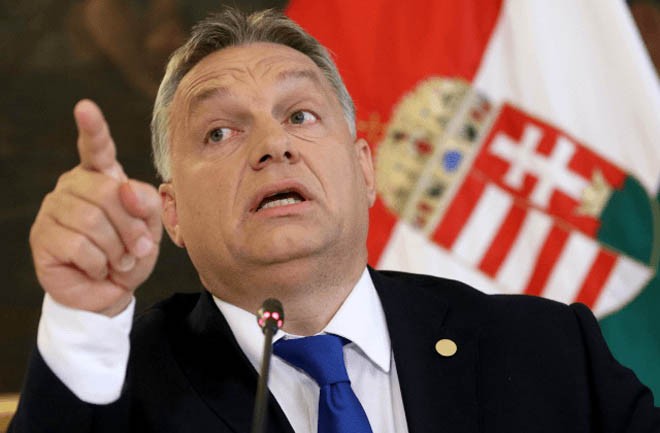
The result of the Hungarian election bodes ill for European unity

Dear All,
Last week Hungary’s Prime Minister Viktor Orban won a third term in office, thanks in large part to his anti-Muslim, anti-immigrant rhetoric.
His right wing Fidesz party campaigned largely on the anti-immigrant platform and Muslims were singled out as a particular danger to the country. ‘Security’ was said to be the concern as Muslims were spoken of in terms not just being a threat to nationhood but also to peace and security.
The strategy paid off: the party appears to have won over two thirds of the seats in the Hungarian parliament and if this is the case then it will now be in a position to change or amend the constitution if the government wants to.
Hungary, you will recall, is the country that built a nasty sort of a fence to keep out asylum seekers during the 2015-16 refugee crisis when thousands of people from war torn countries headed for Europe. The Hungarian government opposed the EU policy on migration and made sure they kept the migrants out.
This is Orban’s third term in office, and during this time Hungary’s stance on the EU policy has hardened, and right-wing ultra-nationalistic public sentiment has risen. The xenophobic stance taken by Hungary is very clear but what is far more disturbing is the reaction to Orban’s victory from other European neighbours.
Poland’s PM Mateusz Morawiecki, for example, congratulated his Hungarian counterpart promptly and seemed to express his approval of Orban government’s policies. "The road to reform is never easy," Morawiecki tweeted followed by "the support of the majority of society shows that it’s worthwhile to make the effort".
Poland is one of the EU countries which refused to take migrants who had arrived in Europe. Last year, Hungary and Slovakia had challenged the EU’s asylum policy and migrant quotas in the European court, supported by Romania, the Czech Republic and, belatedly, Poland. The European court dismissed these countries’ challenge but the conflict between them and the EU has continued and the resentment about being ‘forced by Brussels’ to accept refugees has grown.
The German Interior Minister Horst Seehofer also congratulated Orban, and said that now the EU should drop their "policy of arrogance and condescension" towards Hungary. Seehofer is a member of the CSU Bavarian Conservative Party, an ally of Angela Merkel’s Christian Democrats, and he has been very critical of Merkel’s policy of welcoming refugees (Germany took in thousands of refugees during the crisis).
And, last week, Poland’s deputy foreign minister and envoy to the EU declared that the result of Hungary’s election was a "confirmation of the emancipation of Central Europe".
It’s not much of a union when ministers of key EU countries start talking of opposition to the EU policy in the language of a liberation movement. But that’s what we see is happening now.
So if Brexit was the beginning of the end for the EU, does the Hungarian election signify the end of the beginning? Have things moved forward so rapidly that the idea of more countries leaving the union is no longer shocking?
It is worth remembering here that the EU was conceived not just as an economic alliance but as a peace project: an attempt to unite European countries who had fought each other in both world wars.
For a brief time we in Europe have enjoyed borderless travel and the illusion of a tolerant society, but it seems that time is now past.
Because the more xenophobic the rhetoric, the greater the electoral appeal. It seems to be sabre-rattling all around -- and this has made the likelihood of war very, very real.
Is it just a matter of time until the EU disintegrates in a storm of ‘emancipation’ rhetoric?
Watch that space…
Best wishes